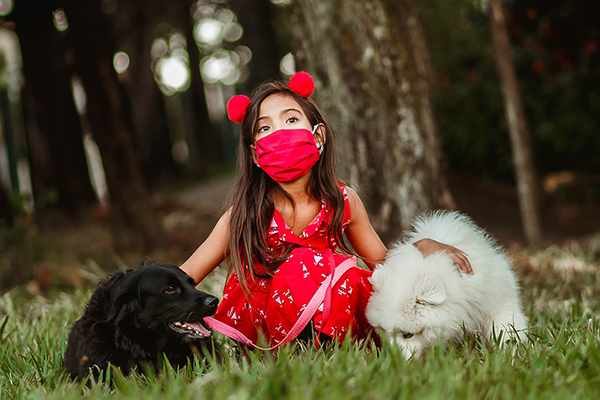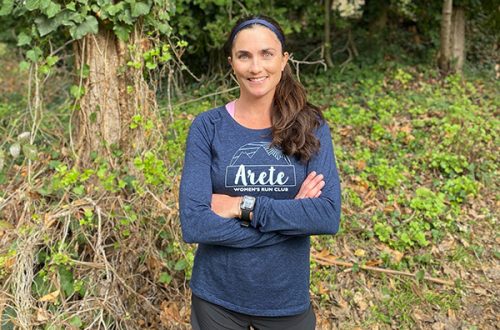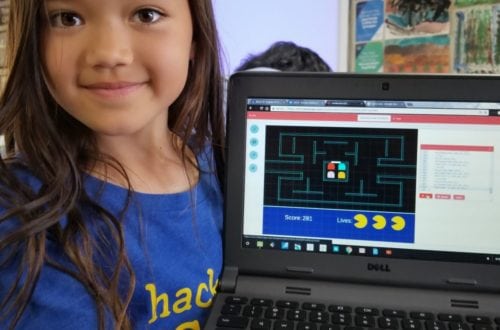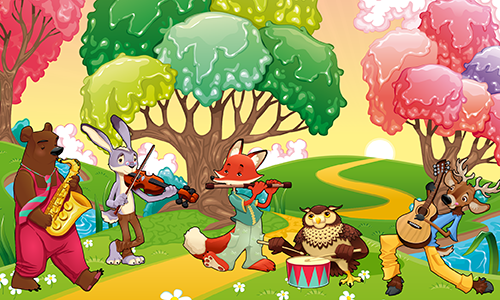(M)asking for a Friend
by Nicole M. Young, MSW
The California Department of Public Health recently changed its guidance on masks in school settings from “required” to “strongly recommended.” What does this mean for students, teachers, and families? Just like the last two years of COVID-19 guidance, this latest shift generated lots of questions and reactions. So I’m sharing what I’ve learned from local pediatricians, educators, and public health leaders who are facing the same questions as both parents and professionals.
This monthly column provides tips for anyone raising children, based on the world-renowned Triple P – Positive Parenting Program, available to families in Santa Cruz County. If you have a question or idea for a future column, email me at [email protected].
Dear Nicole,
I welcome the return to “normal” after constant disruptions to our lives, but I’m also worried for my child. They’ve been great about wearing a mask because of a sick grandparent who lives with us and a younger sibling who can’t be vaccinated yet. They want to keep wearing a mask at school but feel pressured not to. At a recent birthday party, I was shocked when some parents criticized my child and others who wore masks, then got angry when their kids repeated those behaviors. It’s stressful and confusing as an adult, and I worry that it’s affecting my child. How do I keep my family safe and help my child navigate the changing guidelines at school and with peers?
– Norma
Dear Norma,
Many parents and families are struggling with these same issues. Your question is about COVID and mask-wearing, but also about broader issues like peer pressure, problem-solving, respect, and compassion. It might help to think of the COVID-specific guidance as an opportunity to help your child build those skills, which will be useful in many situations throughout life. Here are some tips:
Acknowledge the challenges
The situations you described can create pressure for kids. Even for adults, changes in guidance, constant risk calculations, and conflict with others who don’t agree with our views and decisions can be stressful. Just listening and acknowledging that these situations aren’t easy can help your child feel supported.
Have a problem-solving discussion
Help your child identify options and develop a plan they feel comfortable and confident about. Ask them to describe the pros and cons of wearing a mask in different situations—the classroom, outdoors at recess, a friend’s house, etc.—and whether they would make the same decision in every situation. Ask, What makes you feel safer? What worries you most? How can you communicate your choices in a respectful, kind way to others? What could you say or do if someone criticizes your decision to wear a mask?
Practice
It can be tough and lonely to stand up for your beliefs, especially if you feel outnumbered. On this issue and many others, your child may feel more prepared to state their views with confidence after practicing at home. Try pretending you’re a classmate who’s criticizing your child for wearing a mask, then have your child practice responding—e.g., “I understand your decision not to wear a mask. I’m trying to protect my little sister, so I will keep wearing one. I hope you’ll respect my decision, like I respect yours.”
Build support for your child’s choices
If your child chooses to wear a mask, how can you surround them with support? Consider talking with your child and other adults about recognizing bullying behaviors, such as ridiculing or excluding those who wear masks, and how to respond if it happens.
Use other available tools to protect your family’s health. Vaccination against COVID is still the best way to avoid serious illness, hospitalizations, and long-term consequences (which may occur even with a mild case of COVID), but only about one-third of children aged 5 to 11 are currently vaccinated in California. The rates for 12- to 17-year-olds are better but still lag behind adults. If an exposure occurs, testing can help you and your family make informed decisions about whether to be around others.
Model behavior you want to see more of. Even if we have different opinions about what’s safe, safer, and safest, we can communicate those opinions respectfully and honor other choices, even if we profoundly disagree with them. Our children are watching us.
FINAL THOUGHTS
No matter what happens next with COVID-19, it’s clear we’ll be making more decisions on a day-to-day basis. Learning to navigate these with care and concern for ourselves, our families, and others is a useful skill for all kids (and adults!) to develop.
Nicole Young is the mother of two children, ages 18 and 22, who also manages Santa Cruz County’s Triple P – Positive Parenting Program, the world’s leading positive parenting program. Scientifically proven, Triple P is made available locally by First 5 Santa Cruz County, the Santa Cruz County Health Services Agency (Mental Health Services Act) and the Santa Cruz County Human Services Department. To find a Triple P parenting class or practitioner, visit triplep.first5scc.org, facebook.com/triplepscc or contact First 5 Santa Cruz County at 465-2217 or [email protected].








